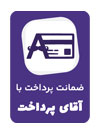Bilingual Glossary
Glossaries
The practice of children talking aloud to themselves while engaged in play.
The ability to understand and apply social rules for language use. Children who are skilled at pragmatic use or who have communicative competence can use language to persuade peers and adults, ask and answer questions in school, and request entry into a playgroup.
Developing a degree of communication in a number of languages over a lifetime, not necessarily in a school setting.
The ability to detect or manipulate the sound structure of spoken words, independent of meaning. It is an increasingly sophisticated capability that is highly predictive of a child’s later ability to read.
The ability to hear, identify, and manipulate the sequence of individual sounds (phonemes) in spoken words.
the stages of second language acquisition (Krashen and Terrell, 1984): Pre-production, Early Production, Speech emergence, Intermediate and advanced fluency.
Parents decline ESL services for which children qualify. Students are placed in mainstream programs without ESL support, but, in Ohio, students remain eligible for accommodations on statewide tests and must take the OTELA until exited from the ESL program.
A language practice used by children as they are learning a language in which they apply a perceived rule or use of a word incorrectly. For example, a child may say “mans” instead of “men” to show the plural form of the word “man”.
Teachers are licensed with bilingual endorsement. ELLs are taught content in their first language. English language use is gradually increased until proficiency in both languages is reached.
Synonyms: OTELA
Administered to all identified ELLs in Ohio as required by No Child Left Behind. This test determines each student’s level of English proficiency and is the basis for exit from an ESL program.
Synonyms: OGT
Administered to all students in public schools in grade 10 and beyond until the test is passed. ELLs may be eligible for some waivers and accommodations depending on length of time in U.S. schools and level of proficiency in English as measured on a screener recognized by ODE or the OTELA. Proficiency on the OGT is required for graduation, but not necessarily for entrance to colleges.
Synonyms: OAT
Administered to all Ohio students in public schools in grades 3-8. ELLs may be eligible for some waivers and accommodations depending on length of time in U.S. schools and level of proficiency in English as measured on a screener recognized by ODE or the OTELA.

 Persian
Persian  English
English  Arabic
Arabic 



